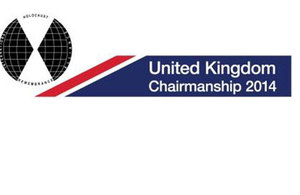British Ambassador to Greece addresses International Conference
The British Ambassador John Kittmer addressed today the International Conference, Resistance and the Jews in Europe 1939-1945.

The British Ambassador John Kittmer addressed today the International Conference, Resistance and the Jews in Europe 1939-1945, which is taking place at the Jewish Museum in Athens from 29 to 30 May 2014.
The conference aims to discuss the resistance activities in Nazi-occupied Europe focusing on the social, religious and racial solidarity developed between the resistance fighters in the occupied countries. It seeks to illuminate fundamental questions regarding the social and political aspects of the resistance and to re-examine Antifascism during WWII.
Addressing the conference, the Ambassador said:
The Holocaust in Greece was one of the most brutal and devastating in Europe. But the history of Jewish resistance fighters in Greece remains very little known. Human beings, human communities have more than one side; they are complex and multi-faceted. The Jews of Greece were not just victims; they were survivors, activists, and fighters as well. I congratulate the Jewish Museum of Greece, and its Director, Zanet Battinou, not only for its recent exhibition “Greek Jews in the National Resistance”, but also for this excellent conference, which will lead to a clearer and better understanding of the insufficiently known history of Jewish Resistance in Europe and, particularly, in Greece.
The UK assumed the annual Chair of IHRA on 25 February 2014. The handover between Dr Mario Silva (Canada) and Sir Andrew Burns (UK) was officially carried out at a ceremony in Berlin.
During the UK Chairmanship of IHRA, the British Embassy in Athens will be organising a series of related activities and events.
Notes for editors:
Among the aims of the new IHRA Chair for 2014 will be to intensify work on IHRA’s multi-year plan and extend the influence of IHRA beyond Europe and North Africa and to strengthen the efforts of the IHRA’s 31 member states to promote education, remembrance and research about the Holocaust, to strengthen the moral commitment of peoples, and the political commitment of governments to ensure that future generations can understand the causes of the Holocaust and reflect on its consequences
- The International Holocaust Remembrance Alliance (IHRA) is an intergovernmental body whose purpose is to place political and social leaders’ support behind the need for Holocaust education, remembrance and research both nationally and internationally.
- The UK was one of the three founding members of IHRA and an original signatory of the Stockholm Declaration of 2000. The UK held the IHRA Chairmanship for the first time in 1999.
- IHRA currently has 31 member countries and five observer countries.
- Assuming the IHRA Chair on behalf of the UK Sir Andrew Burns, the UK’s Envoy for Post-Holocaust Issues, presented its programme for the year in a White Paper.
- On 27 January 2014, Prime Minister David Cameron launched a Holocaust Commission. The Commission will work to ensure Britain has a permanent memorial to the Holocaust and educational resources for future generations. It will report its findings to the Prime Minister by the end of the year.
- Holocaust Memorial Day has been marked in the UK since 2001, having been inaugurated the previous year by the then prime minister.